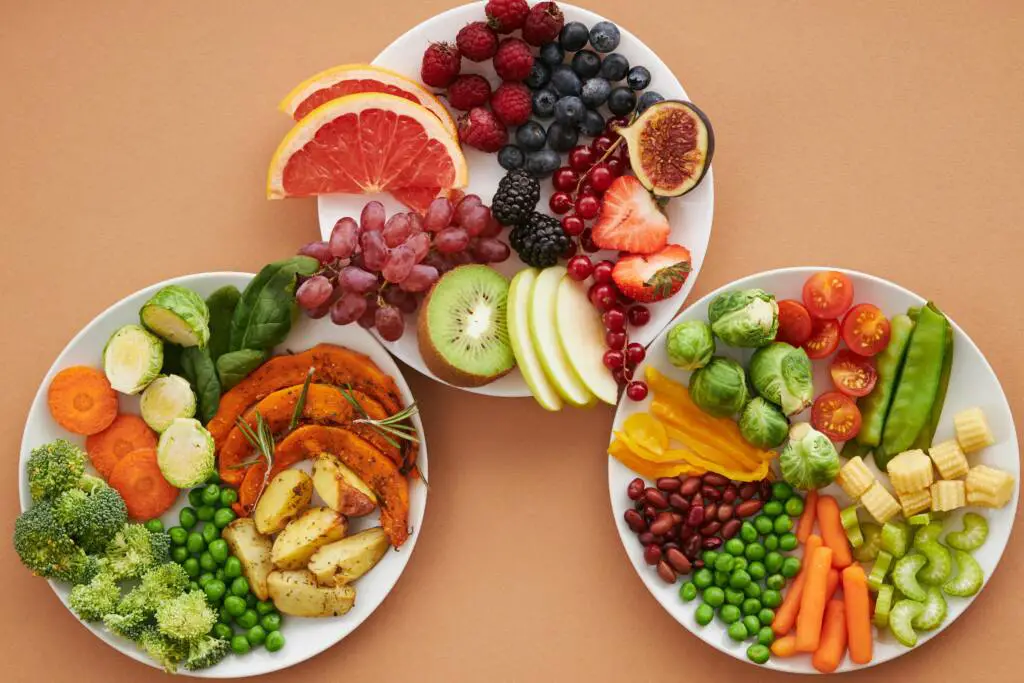Best Plant-based Protein Sources

As I dive into the world of plant-based proteins, I am excited to unravel the wonders of these nourishing alternatives. Let’s explore what exactly plant-based proteins are and why they have been gaining so much popularity recently.
Defining Plant-Based Proteins
In simple terms, plant-based proteins are derived from plants such as beans, legumes, nuts, seeds, and grains. These proteins serve as the building blocks for our bodies, just like animal-based proteins.
Benefits of Plant-Based Proteins
Switching to a plant-based diet enriched with proteins brings a plethora of benefits. Not only are these proteins rich in essential nutrients like fiber, vitamins, and minerals, but they also contribute to lower cholesterol levels and reduced risk of chronic diseases.
Rise in the Popularity of Plant-Based Diets
The surge in the popularity of plant-based diets is undeniable. People are increasingly recognizing the health and environmental advantages of consuming plant-based proteins over animal-based options. The choice to go vegetarian or vegan is no longer just a trend but a conscious decision to lead a more sustainable and compassionate lifestyle.
Excited to delve into the fascinating array of plant-based protein sources in the upcoming section, where the endless possibilities of culinary adventures await me!
A variety of Plant-Based Protein Sources
When it comes to incorporating plant-based protein into my diet, I love exploring the wide variety of options available. From legumes to nuts, there are so many delicious and nutritious choices to choose from that keep me energized throughout the day. Let’s dive into the world of plant-based protein sources and discover the best ones for our bodies!
Best Plant-Based Protein Products and Brands
When it comes to plant-based protein products and brands, the options can be overwhelming. Personally, I have tried numerous plant-based protein supplements and found some to be more effective and enjoyable than others. Here are my top recommendations for the best plant-based protein products and brands that have consistently delivered high quality and great taste.
Top Recommended Plant-Based Protein Brands
1. Garden of Life: Known for its organic and non-GMO protein powders, Garden of Life offers a wide range of plant-based protein options suitable for different dietary preferences.
2. Vega: With a focus on clean, plant-based ingredients, Vega provides protein powders and bars that are not only nutritious but also delicious.
3. Orgain: Orgain offers plant-based protein shakes and powders that are not only rich in protein but also free from artificial ingredients, making them a great choice for a healthy lifestyle.
Criteria for Choosing the Best Plant-Based Protein Supplements
When selecting plant-based protein products, it is essential to consider factors such as ingredient quality, taste, texture, nutritional content, and value for money. By prioritizing these aspects, you can ensure that you are getting the best possible product for your needs.
Key Factors to Consider When Selecting Plant-Based Protein Products
Protein Content: Ensure that the product provides an adequate amount of protein per serving to meet your nutritional requirements.
Ingredients: Check the ingredients list for any allergens or additives that you may want to avoid.
Flavor and Texture: Choose a product that you enjoy consuming to make it easier to stick to your protein intake goals.
Price: Consider the cost per serving to ensure that the product fits within your budget.
Brand Reputation: Opt for reputable brands that prioritize transparency and quality in their products to make an informed choice.
Health Benefits and Risks of Plant-Based Proteins
As I delve into the world of plant-based proteins, I’ve uncovered a plethora of health benefits and some potential risks that come with adopting a vegetarian or vegan diet. Let’s explore the positive impacts it can have on our bodies while also considering the drawbacks that might arise along the way.
Positive Impacts of Plant-Based Proteins
Embracing a plant-based diet can bring about numerous health benefits, including:
Improved Heart Health
Consuming plant-based proteins has been linked to lower risks of heart disease and stroke, thanks to their low saturated fat content.
Weight Management
Plant-based proteins are often lower in calories and saturated fats, making them an excellent choice for those looking to maintain or lose weight.
Potential Risks of a Plant-Based Diet
While plant-based diets offer many advantages, there are some risks to be mindful of:
Nutritional Deficiencies
Without careful planning, vegetarians and vegans may be at risk of deficiencies in essential nutrients such as vitamin B12, iron, and omega-3 fatty acids.
Protein Quality
Plant-based proteins may lack certain essential amino acids found in animal sources, necessitating a varied diet to ensure all protein needs are met.
Summary and Recommendations
As I review the various plant-based protein sources in this article, it’s clear that there are numerous options available for incorporating them into my diet. From legumes and nuts to tempeh and tofu, the choices are diverse and exciting. Summary: I’ve learned about the nutritional benefits of each protein source and how they contribute to my overall health. Reviewed: By making small changes and substituting animal proteins with plant-based alternatives, I can improve my well-being while reducing my environmental impact. In conclusion, it’s time to start experimenting with these plant-based proteins to find what works best for me.
https://7thavewellnessblog.com/?p=4257
https://www.usda.gov/
FAQs
Certainly!
FAQs: Plant-based Protein
What are some good plant-based protein sources?
Some excellent plant-based protein sources include tofu, tempeh, lentils, chickpeas, black beans, quinoa, nuts, seeds, and soy products like edamame.
Can plant-based protein provide all the essential amino acids?
Yes, many plant-based protein sources offer a complete amino acid profile, such as soy products, quinoa, and buckwheat. Combining different plant-based protein sources throughout the day ensures you get all the essential amino acids your body needs.
How much plant-based protein should I consume daily?
The recommended daily intake of protein varies depending on factors like age, sex, and activity level. As a general guideline, aim to include plant-based protein sources in each meal and snack to meet your individual protein needs.
Are there any benefits to choosing plant-based protein over animal-based protein?
Yes, opting for plant-based protein can offer various health benefits, including lower saturated fat and cholesterol intake, increased fiber and antioxidant consumption, and potential reductions in the risk of chronic diseases like heart disease and diabetes.
Can athletes meet their protein needs with plant-based options?
Absolutely! Many athletes thrive on plant-based diets, meeting their protein requirements through a combination of whole foods and supplements if needed. Plant-based protein sources can support muscle recovery, endurance, and overall athletic performance.







